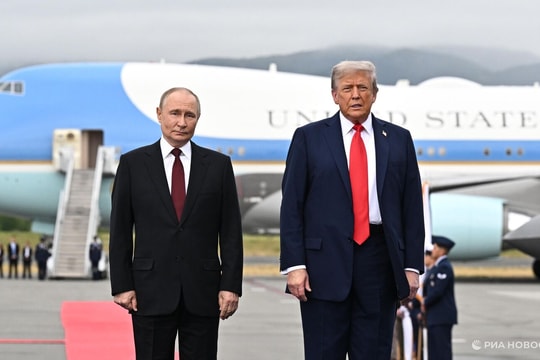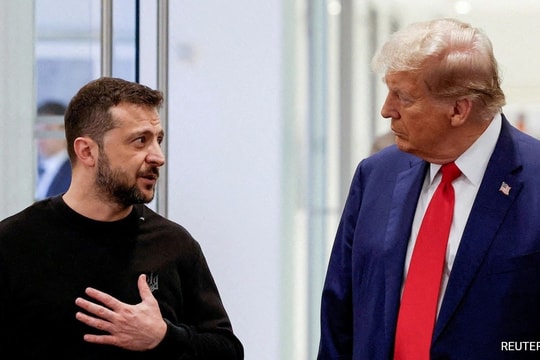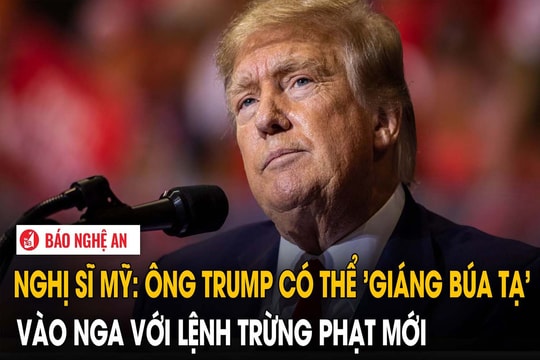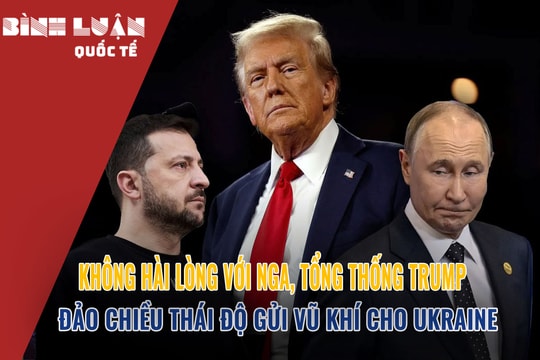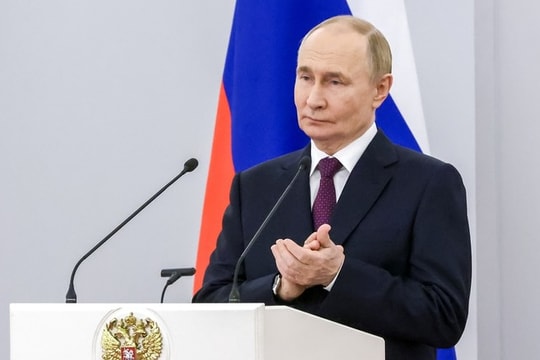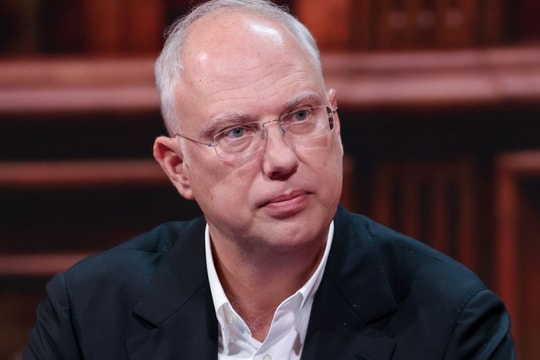Decoding the US and EU's coordinated sanctions against Russia
(Baonghean.vn) - The US and its European allies have just coordinated sanctions against Russia in connection with the arrest of Russian opposition leader Alexey Navalny, and said that this is just the beginning of a comprehensive reassessment of foreign policy towards Russia under Joe Biden. However, according to observers, the US appears tough but will only "raise high and hit lightly" to "show off" to Russia.
The beginning of a spiral of stress
Sanctions - a familiar tool of the US government for more than a decade to respond to Russian actions that are considered to violate Washington's norms. This is no exception with the new administration of Mr. Joe Biden. In a move considered the most direct confrontation of the administration of President Joe Biden, the US Treasury Department on March 2 announcedimpose sanctionswith 7 senior Russian officials after the country's intelligence concluded that Moscow was behind the "poisoning" of Alexei Navalny - an opposition politician in Russia. The Russian officials named on the sanctions list this time include: Director of the Russian Federal Security Service Aleksandr Bortnikov; Head of the Kremlin's domestic policy department Andrei Yarin; and two Deputy Defense Ministers Alexei Krivoruchko and Pavel Popov and a number of other individuals. According to the US sanctions, these people will have their visas restricted to the US, all assets in the US will be frozen and Americans are prohibited from doing business with them. In addition, any foreigner who intentionally "arranges a significant transaction" for them will be at risk of sanctions.
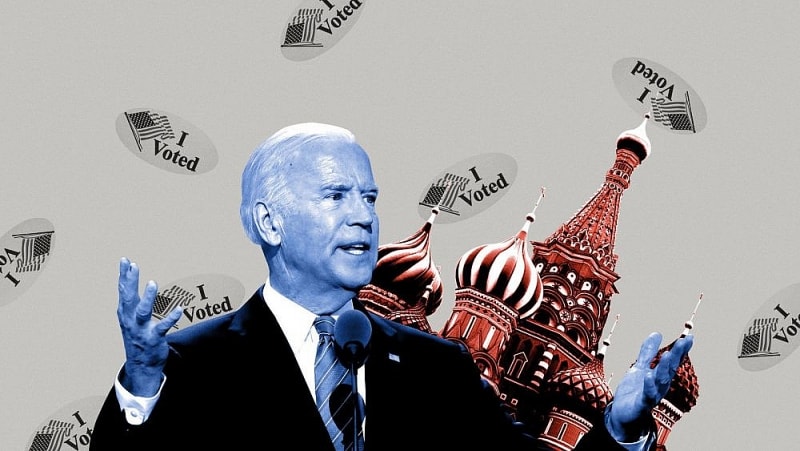 |
| The administration of President Joe Biden announced on March 2 that it would impose sanctions on seven senior Russian officials. Photo: Getty |
Washington’s sanctions come shortly after EU member states approved sanctions against four senior Russian law enforcement and judicial officials over Navalny’s arrest. This is clearly a manifestation of the coordinated action between the US and its European allies in dealing with Russia, as Joe Biden said during his election campaign.
The latest sanctions are likely just the beginning of new tensions between Washington and Moscow, as the US announced it would launch a comprehensive review of US-Russia policy, including Navalny, interference in the US election, the Solar Winds cyberattack and bounties paid to Taliban-linked groups targeting US troops in Afghanistan. “Today is the first response and there will be more,” a US official said.
Russia called the new US sanctions a “hostile attack against Russia” and urged Washington to “not play with fire” as it would take reciprocal actions. With such statements, the prospect of a “tit-for-tat” confrontation between the US and Russia seems not far-fetched.
America "raise high, hit lightly"
The US sanctions against Russia were predicted before Mr. Biden officially became the owner of the White House. However, there are some notable points after this latest move. First, the Biden administration wants to show that it does not reverse the confrontational policy of previous administrations against Russia. Over the years, the Russia-US relationship has always been in a state of confrontation, although at different levels and degrees. Anti-Russian sentiment, considering Moscow as a potential rival to Washington's security and influence is the view of both Democrats and Republicans in the US. So Mr. Biden has no reason to "reset" the relationship with Russia in a warmer direction.
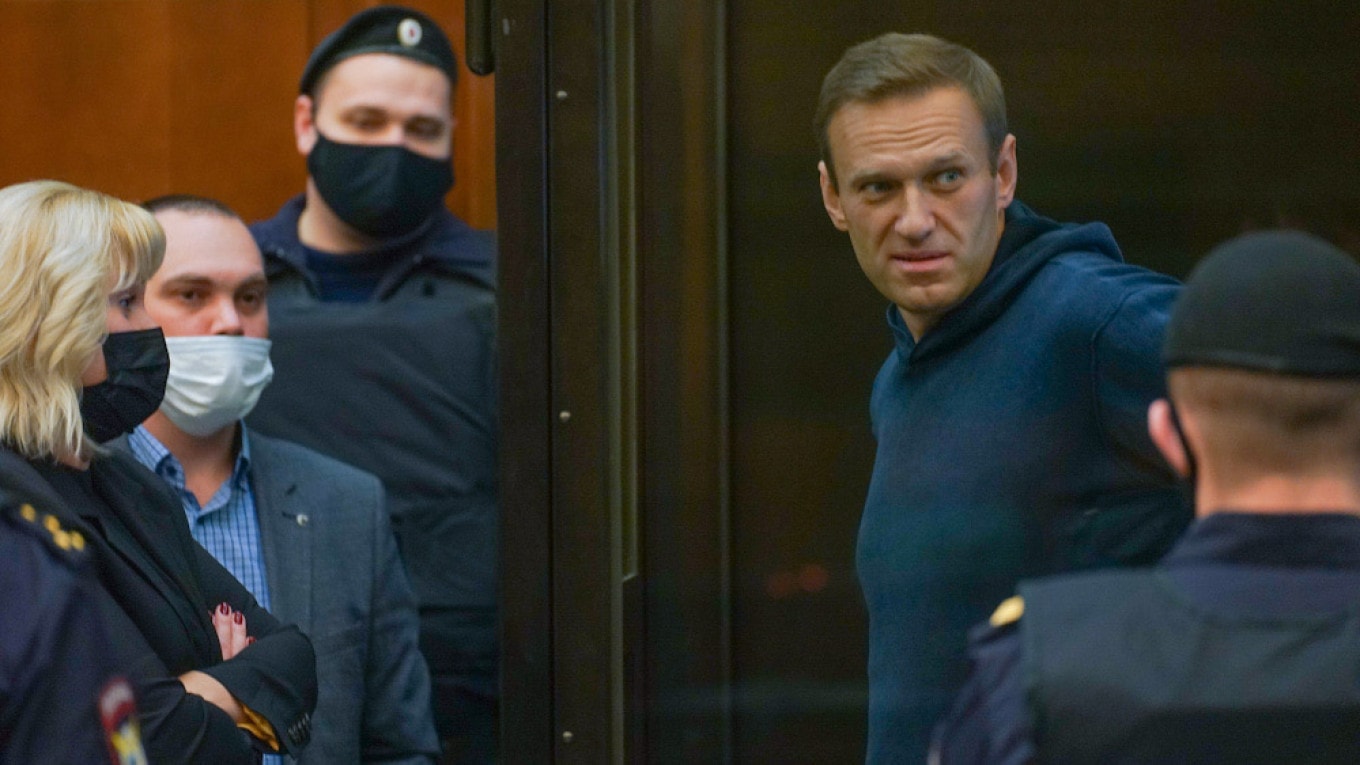 |
| The US and EU imposed new sanctions on Russian officials over the arrest of Russian opposition leader Alexei Navalny. Photo: Moscow Times |
Second, in many of the US files accusing Russia, the choice of caseRussian opposition politician Alexey Navalnyas an excuse to “take action” against Russia seems to be a message from the US administration that Mr. Biden is particularly “paying attention” to human rights records. This is different from the administration of former President Donald Trump when it repeatedly refused to impose sanctions on Russia related to the Navalny case.
Third, with the latest move, the US is trying to show unity on the same front with its European allies in the confrontation with Russia. However, it is also clear that, despite appearing fierce, the US will not "put up a fight" and push the relationship with Russia to an uncontrollable level. It can be seen that this sanctions package is not aimed at Russian President Putin or his right-hand men in the Kremlin. This is similar to the reaction last week when President Biden blocked direct sanctions against Saudi Crown Prince Mohammed bin Salman despite a CIA report showing that he was "involved in the campaign to kill journalist Jamal Khashoggi" in 2018.
This can be explained because the current US administration does not want to cut off dialogue with Russia. Mr. Biden's view is that on the one hand, he wants to deal with the issues that the US believes Russia has violated the standards, but on the other hand, he still wants to cooperate with Moscow to solve international issues with the US, such as Iran's nuclear weapons, North Korea, nuclear arms control, combating climate change...
Furthermore, because it pursues the view of "coordinated action" with its allies, it is difficult for the US to strike decisively against Russia while the other sideEU only acts “to a certain extent”. Currently, the EU is still divided internally due to different interests in relations with Russia. France, Germany and some major countries call for a more targeted, political approach, ignoring economic measures. At the 56th Munich Security Conference in Germany in early 2020, French President Emmanuel Macron called for promoting dialogue and normalizing relations with Russia. So, from this perspective, the US cannot ignore the views of its allies even if it wants to.
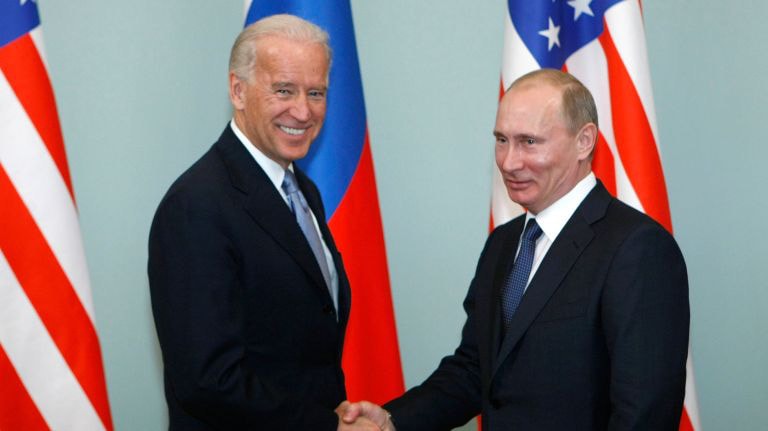 |
| Mr. Joe Biden, when he was Vice President of the United States, met with Russian President Putin. Photo: Getty |
In general, it seems that the Biden administration's policy towards Russia is somewhat similar to that of China: Moscow will be both a "partner" and a "target" of Washington. In this approach, it is likely that the US administration is also considering the relations between Europe and Russia and Russia - China to make flexible adjustments. Because if the Biden administration continues to pressure Moscow, it will only push Russia and China closer together. In fact, over the past 4 years, the relationship between Russia and China has reached many new heights as both countries face pressure from the US. So it can be said that the Russia - US relationship in the coming time will be difficult to "reset" but will not escalate out of control. The flexible, multi-dimensional approach that the US administration is pursuing will shape this relationship in a state of tension and mutual restraint.

